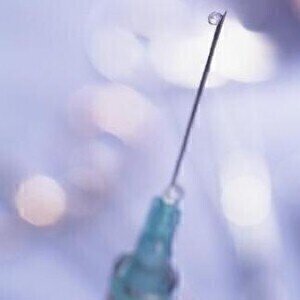News & Views
Injection turns heart cells into 'biological pacemakers'
Dec 17 2012
Ordinary heart cells can be transformed into precise replicas of highly specialised pacemaker cells by injecting a single gene, a study has determined.
The technique could act as a significant step forward in the decade-long search for a biological therapy to treat erratic and failing heartbeats, as pacemaker cells can produce electrical activity, spreading to other heart cells to create rhythmic muscle contractions.
This is according to researchers from the Ceders-Sinai Heart Institute, who will publish their findings in the January 8th issue of Nature Biotechnology.
If these cells go askew, the heart bumps irregularly, so patients healthy enough to undergo such surgery often view an electronic pacemaker as the only way they can survive.
The heartbeat is established in the sinoatrial node of the heart's upper chamber, where pacemaker cells are clustered together. Even though the human heart has ten billion cells, fewer than 10,000 can be described as pacemaker ones.
After being reprogrammed by the Tbx18 gene, the newly developed pacemarker cells boasted all the key features of native pacemakers and maintained their SAN-like characteristics.
The researchers employed a virus engineered to carry a single gene to play a key role in embryonic pacemaker cell development. These new cells take on the distinctive features and functions of native pacemaker cells.
Previously, efforts to generate new pacemaker cells culminated in heart muscle cells, which were capable of beating on their own accord, yet these were more akin to ordinary muscle cells than the pacemaker counterparts.
However, this new work is the first to develop pacemaker cells that closely resemble the native ones, while being free from the risk of cancer.
Eduardo Marbán, MD, PhD, director of the Cedars-Sinai Heart Institute and Mark S. Siegel Family Professor, a pioneer in cardiac stem cell research, said: "This is the culmination of 10 years of work in our laboratory to build a biological pacemaker as an alternative to electronic pacing devices."
These latest findings follow a discovery by Dr Adelheid Cerwenka from the German Cancer Research Centre, where it was found that natural killer cells can be used with immune mediators to help the human body fight off cancer.
Posted by Ben Evans
Digital Edition
Lab Asia 31.2 April 2024
April 2024
In This Edition Chromatography Articles - Approaches to troubleshooting an SPE method for the analysis of oligonucleotides (pt i) - High-precision liquid flow processes demand full fluidic c...
View all digital editions
Events
May 05 2024 Seville, Spain
InformEx Zone at CPhl North America
May 07 2024 Pennsylvania, PA, USA
May 14 2024 Oklahoma City, OK, USA
May 15 2024 Birmingham, UK
May 21 2024 Lagos, Nigeria











.jpg)






